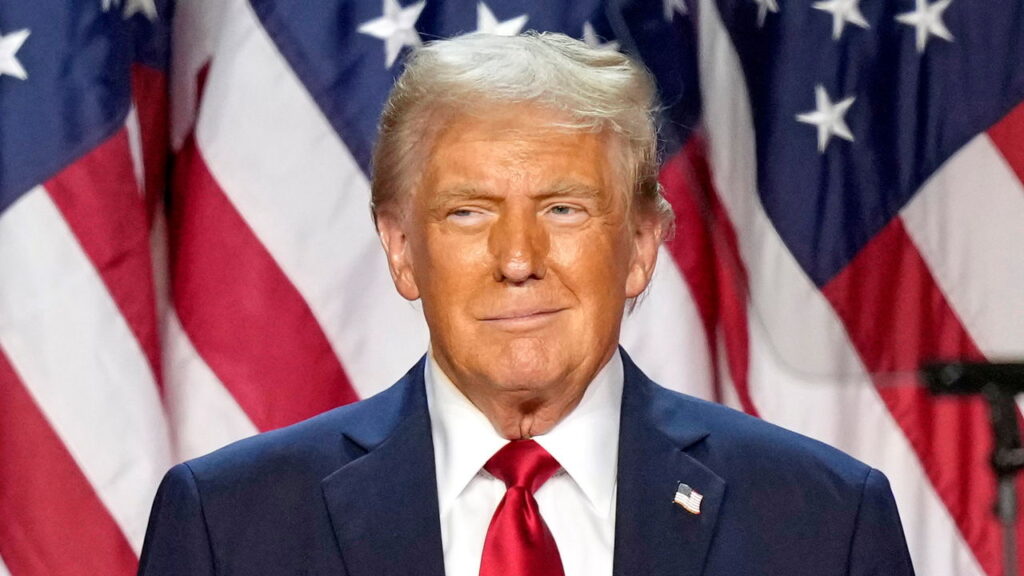Your browser does not support the
IT WAS A high-stakes election for all Americans, most of all Donald Trump. Had he lost, there was a fair chance that he would have gone to prison. He faces four separate sets of criminal charges, each with a prospect of jail time. Instead, once back in the White House, Mr Trump will be able to quash his two federal indictments and the two state cases against him are all but certain to be frozen.
That Mr Trump has managed to largely evade legal accountability is partly a result of his stalling for time, in anticipation of this very outcome. His strategy was aided by the Supreme Court, a third of whose justices he appointed. And yet his supporters see a justice system that is pliable and easily weaponised. To some in MAGA world, Mr Trump’s threats to train it against his political enemies now sound eminently reasonable.
The first post-election piece of business in Mr Trump’s trials will come in the hush-money case in Manhattan, where, barring further delay, he is due to be sentenced on November 26th. In May he was convicted on 34 counts of falsifying business records to conceal a payment to a porn star. Each charge carries a maximum of four years in prison. Yet there is hardly any chance of the judge imposing jail time—constitutional scholars agree that a sitting president cannot be locked up. In any event Mr Trump’s lawyers will probably ask to postpone sentencing until after his term in office ends.
Next come the two federal cases brought by Jack Smith, a special counsel in the Department of Justice (DOJ). Mr Trump stands accused of refusing to return classified documents upon leaving the White House and of attempting to overturn his defeat after the 2020 election. He denies wrongdoing in both. DOJ policy says that a president cannot be prosecuted while in office. Extinguishing these cases is simple: Mr Trump can fire Mr Smith and direct DOJ lawyers to drop them. He can do this even before his attorney-general is confirmed, notes Mary McCord, a former federal prosecutor.
In Georgia, meanwhile, Mr Trump faces charges in state court over his meddling in the 2020 election. The case is on hold while an appeals court weighs whether the prosecutor who brought the charges should be removed for alleged impropriety. If it ever gets going again, it will not include Mr Trump so long as he is the sitting president. But his 14 remaining co-defendants could still stand trial.
Then there is the civil litigation against Mr Trump for his role in the January 6th riot. Several Capitol police officers have sued him, alleging that he instigated the attack; courts are in the middle of sorting out whether his conduct is immune from civil liability. If they say it is not immune, precedent suggests that civil suits against a sitting president can proceed.
Soon enough attention will turn from Mr Trump’s legal jeopardy to that of his opponents, whom he has vowed to target. At a MAGA victory party attended by your correspondent, shortly before the conga line started, several of his supporters suggested that Joe Biden ought to drop the federal prosecutions against Mr Trump as a show of goodwill. Then one gleefully added that she would love to see their man “take the Bidens down”. ■

